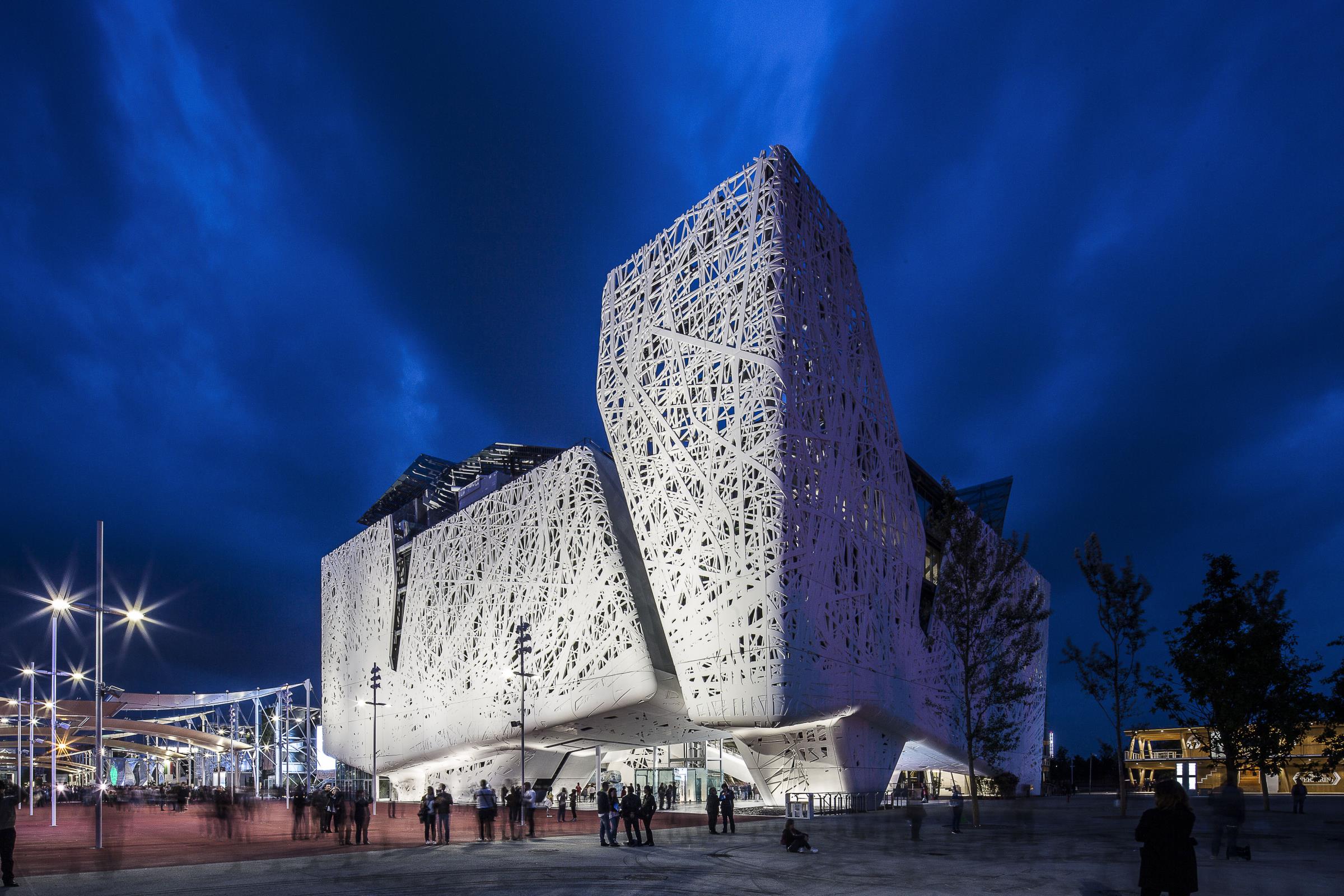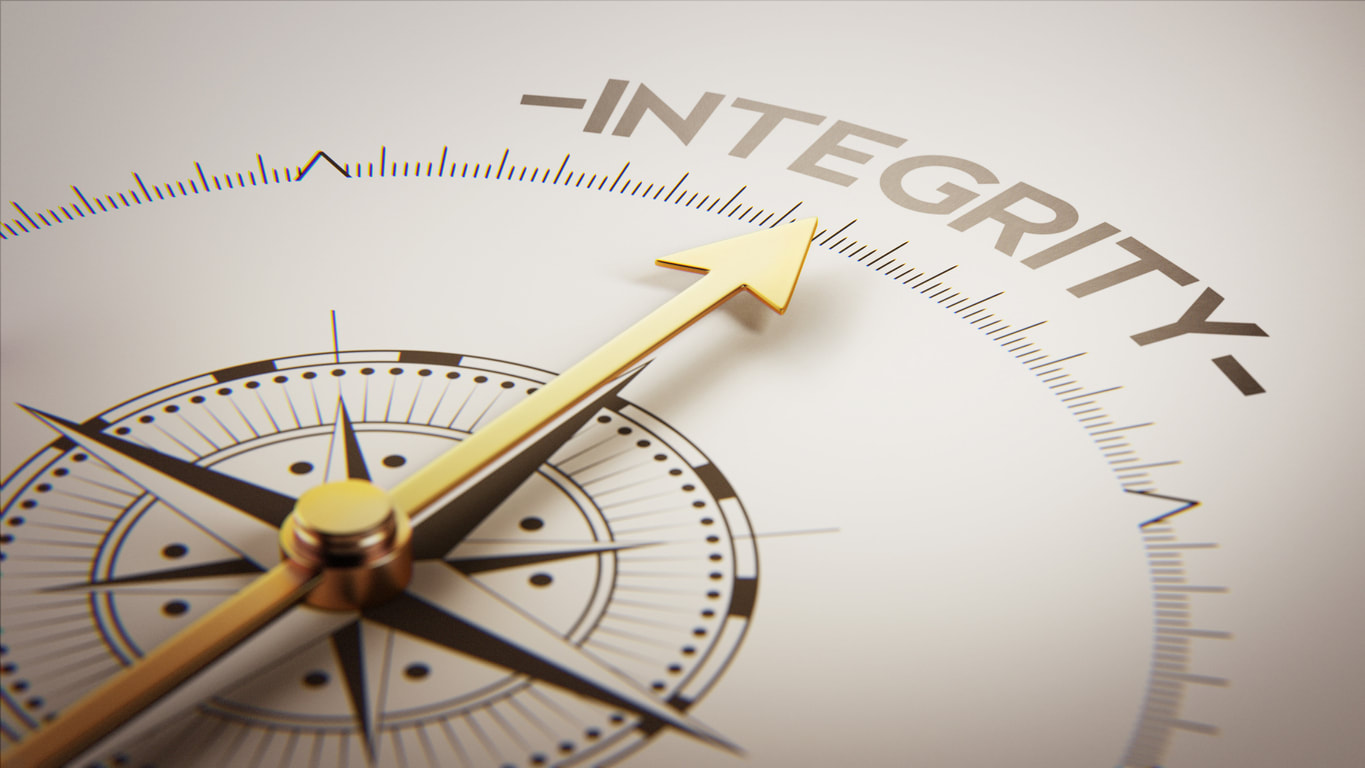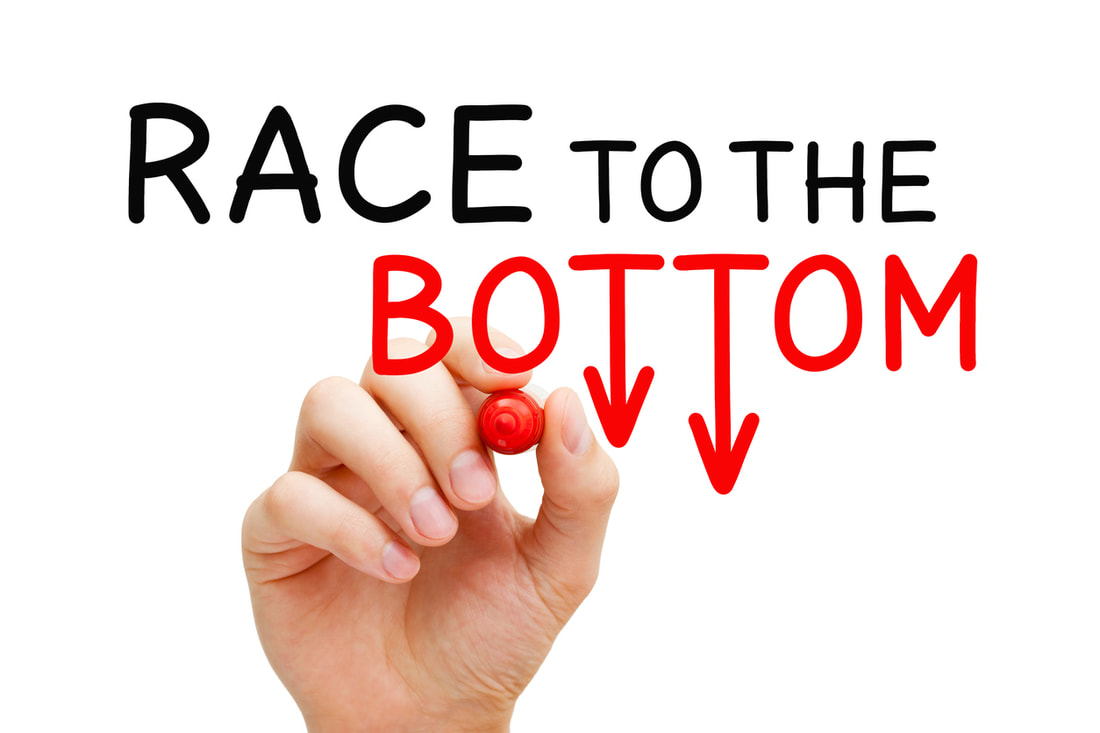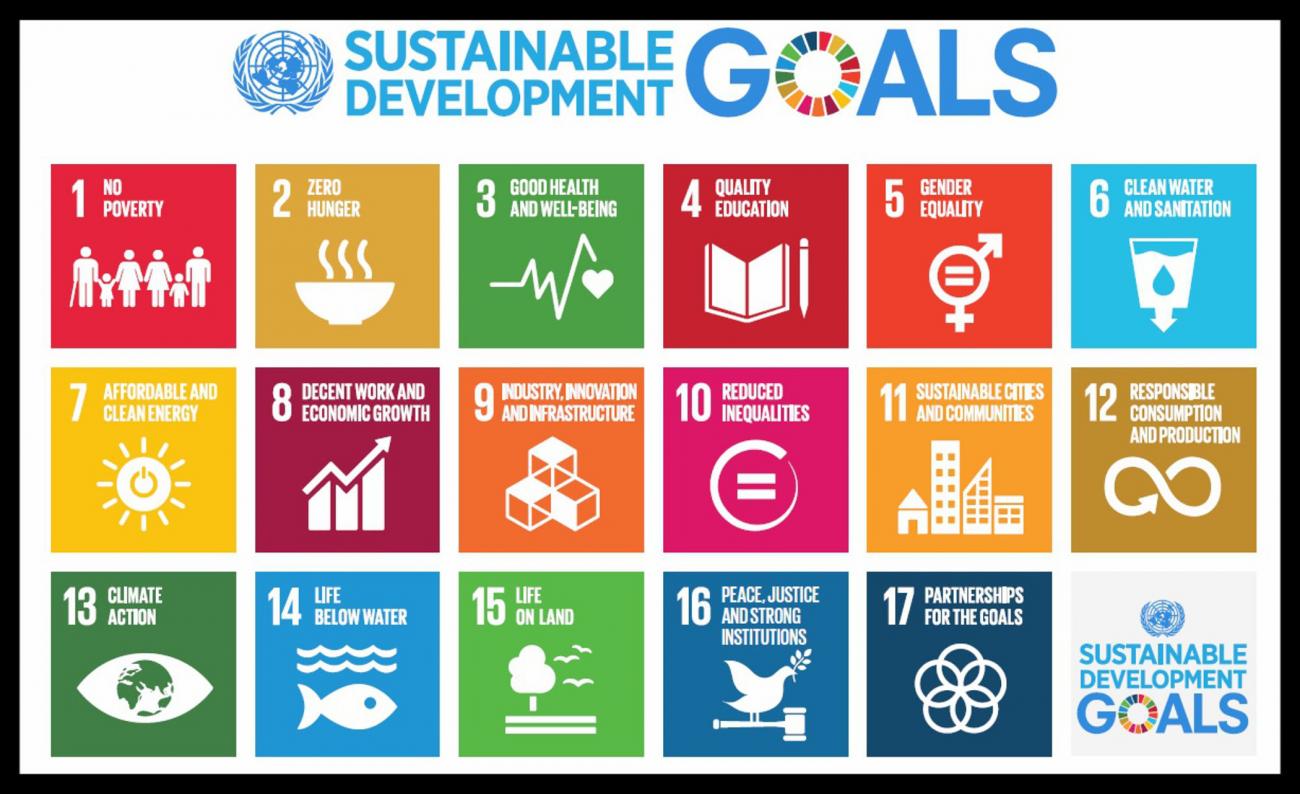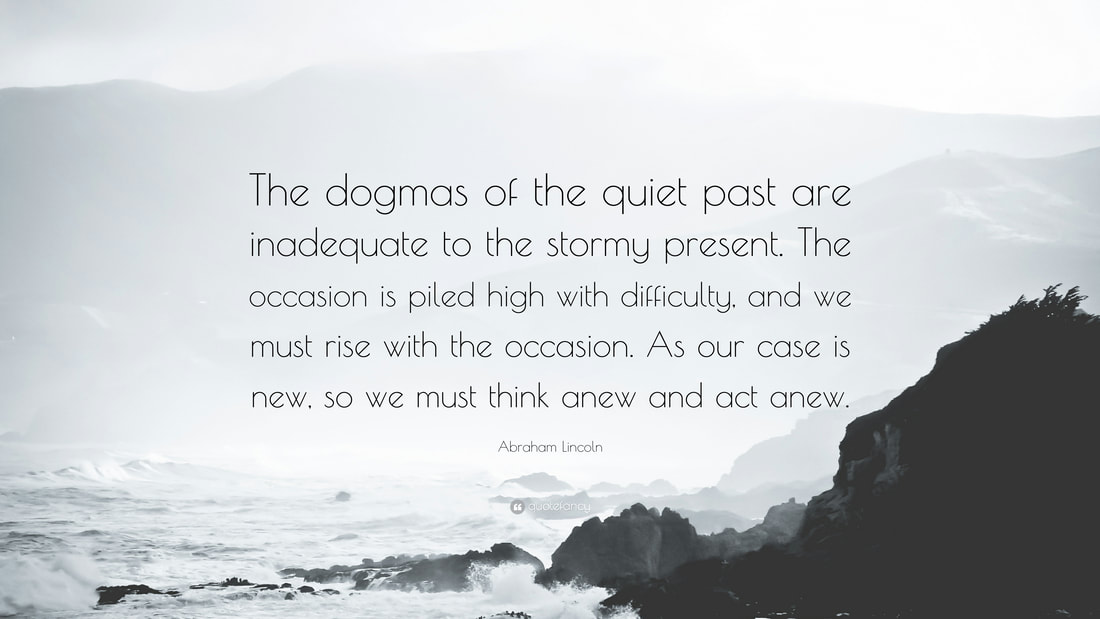“The dogmas of the quiet past are inadequate to the stormy present. The occasion is piled high with difficulty and we must rise with the occasion. As our case is new, we must think anew and act anew.” –Abraham Lincoln
As an insidious virus spreads around the world, we are wise to stop and ask: what can it teach us?
Much, I think. One question I am drawn to lately is this: what does the pandemic teach us about the role of business in society?
“This moment is the curriculum.” –Jon Kabat-Zinn
Shareholder Primacy?
First, some context. For half a century, an epic battle has been raging in board rooms and business schools about the purpose of business. Economist Milton Friedman took the first shot:
“There is one and only one social responsibility of business—to use it resources and engage in activities designed to increase its profits so long as it stays within the rules of the game, which is to say, engages in open and free competition without deception or fraud.” -Milton Friedman
His work laid the groundwork for “shareholder primacy theory,” the idea that shareholders should come first when business executives make decisions, that the primary purpose of business is to increase shareholder (owner) wealth, and that the ultimate measure of a company’s success is the extent to which it rewards shareholders. Jack Welch, former CEO of General Electric (in the 1980s and 1990s), is also credited with fueling this idea in practice.
This idea was so successful that, now, many people take it for granted, as business school gospel, as a law of nature. Of course the role of business executives is to maximize profits and reward shareholders. Right?
A New Take: Stakeholder Theory
Not so fast. Edward Freeman, a business school professor, had a different idea:
“Business is not about making as much money as possible. It is about creating value for stakeholders.” -Edward Freeman
Freeman’s “stakeholder theory” focused not just on shareholders but also employees, customers, suppliers, communities, and the environment, since these are all necessary for the business to survive and thrive. This was not an exercise in wishful thinking or naive altruism. There is a systemic view and innovation imperative that fuels the engine of value creation:
“Managing for stakeholders is not about trade-off thinking. It is about using innovation and entrepreneurship to make all key stakeholders better off and get all of their interests going in the same direction.” -Edward Freeman
The battle was afoot, continuing even to this day.
Systems Under Strain
What does this have to do with a tiny virus (SARS-CoV-2) that causes a global pandemic due to the rapid spread of a novel coronavirus disease (COVID-19)? Much, I think.
Today we see that our health care systems are strained, in some places to the breaking point. These systems are complex, relying on private, nonprofit, and public hospitals and chains and their personnel, equipment, technologies and related links like supply chains, research, labs, insurance providers, laws, regulations, information flows, and data models.
These complex health systems rely heavily on business products and services (e.g., ventilators, masks, vaccines, etc.), which arise from an amalgamation of complex business systems: raw materials, suppliers, manufacturers, distributors, customers, etc., each with their own business models, incentives, and limitations.
These business systems are heavily influenced by complex government systems at different levels—federal, state, and local—which are not used to close collaboration amidst the cascading timing crunches imposed by crises.
These government systems include the three branches of government (executive, legislative, judicial) purposely designed to provide checks and balances to each other (i.e., slowing things down) and an array of challenges and sometimes bizarre influences (e.g., laws, regulations, court orders, campaigns, elections, lobbying, committees, messaging, press briefings, inspectors general, etc.).
During this health + economic crisis, those of us who are parents are also seeing how reliant we are upon a functioning education system, with its own complexities (federal, state, and local laws, regulations, and funding streams). When schools are closed, the impacts on families, workplaces, communities, etc. are vast.
All these systems are affected by a complex financial system. And transportation system. Travel industry. And food industry. Media industry. All of which are complex systems under strain.
All these complex systems exist not only within nations but also across borders, with each country having its own systems and context.
And all of this sits on our planet, itself a vastly complicated system of oceans, winds, climate, biology, chemistry, physics, and more.
Meanwhile, our own personal virus risk profile comes down to an interplay between our own internal systems, including our respiratory and immune systems but also our overall physical and mental health and our own decisions and context related to our work, families, home, movement, and social milieu.
In short, we see compounding strains on systems of systems of systems. In all the death, suffering, and disruption, we are faced with a powerful reminder of just how interdependent we all are, and how relevant systems are to our life, work, and leadership.
The Role of Business… And Conscious Capitalism
In an age of global pandemics that threaten our lives and livelihood, business has a vital role to play. Many business executives are facing their greatest professional trial. A retreat to previous thinking about narrow shareholder focus and short-term profits will be a recipe for disaster—for the business and its stakeholders (us). We need more—and must demand more.
This brings us to a newer idea: “conscious capitalism.” John Mackey and Raj Sisodia wrote a book about it and conceptualize it to include higher purpose, a focus on stakeholders (not just shareholders), conscious leadership, and conscious culture.
“Conscious businesses believe that creating value for all their stakeholders is intrinsic to the success of their business, and they consider both communities and the environment to be important stakeholders. Creating value for these stakeholders is thus an organic part of the business philosophy and operating model of a conscious business.” -John Mackey and Raj Sisodia, Conscious Capitalism
The conscious capitalism movement is dynamic and growing, but up against an entrenched ideology and powerful array of forces, interests, and funds. It is not wrong to view it as an epic battle between two versions of capitalism, but we should place this war of ideas in historical context: capitalism has been around for centuries.
Many view Adam Smith’s classic book, The Wealth of Nations (published in 1776), as a landmark of capitalism, but we forget that his prior book, The Theory of Moral Sentiments, provided important underpinning to it.
Capitalism, business, entrepreneurship, and leadership are all social phenomena with ethical dimensions, and have always been so. What’s more, we have always had “flavors” of capitalism. Some are crass, mercenary, brutal, and short-sighted. Others not. Look to the current practice in northern Europe and the Nordic countries as intriguing examples, and that sync well with the way that many family businesses have operated for centuries (e.g., valuing workers, stewarding resources, taking the long view).
No, Milton Friedman does not have a monopoly on the industry of business ideas.
And no, the choice is not between capitalism and socialism.
No, the answer is not to discard the dynamic engine of progress created by a capitalist system of enterprise. It has lifted so many worldwide out of abject poverty and taken so many into days of prosperity.
And no, businesses cannot just hunker down and maximize profits in a pandemic. They are part of the social fabric, with a vital role to play in getting us through the crisis.
No, the purpose of business is not to make a profit.
Profit is the oxygen which allows the business to survive so that it can create value and pursue a higher purpose, for its people and its customers, and ideally also for its community and our world.
“The purpose of business is not to make a profit. The purpose of business is to find profitable solutions to the problems of people and the planet.” -Robert Fish, co-founder, Biggby Coffee
This is not about turning business into charity. It is instead a challenge to recognize the role of business in society and to look for ways for business to “do well by doing good”—a bold creative challenge. The idea, then, is not profit versus purpose. It is both.
“Just as happiness is best experienced by not aiming for it directly, profits are best achieved by not making them the primary goal of the business.” -John Mackey and Raj Sisodia, Conscious Capitalism
These are the hidden lessons of the virus. They are calling us to think and act anew. And the call is urgent.
+++++++++++++++++++++++++++
Gregg Vanourek is a writer, teacher, speaker, and coach on personal and leadership development. He is co-author of three books, including LIFE Entrepreneurs: Ordinary People Creating Extraordinary Lives (a manifesto for integrating our life and work with purpose and passion) and Triple Crown Leadership: Building Excellent, Ethical, and Enduring Organizations (called “the best book on leadership since Good to Great“). Take Gregg’s Traps Test (Common Traps of Living), check out his Best Articles, get his newsletter, or watch his TEDx talk. If you found value in this article, please forward it to a friend. Every little bit helps!


